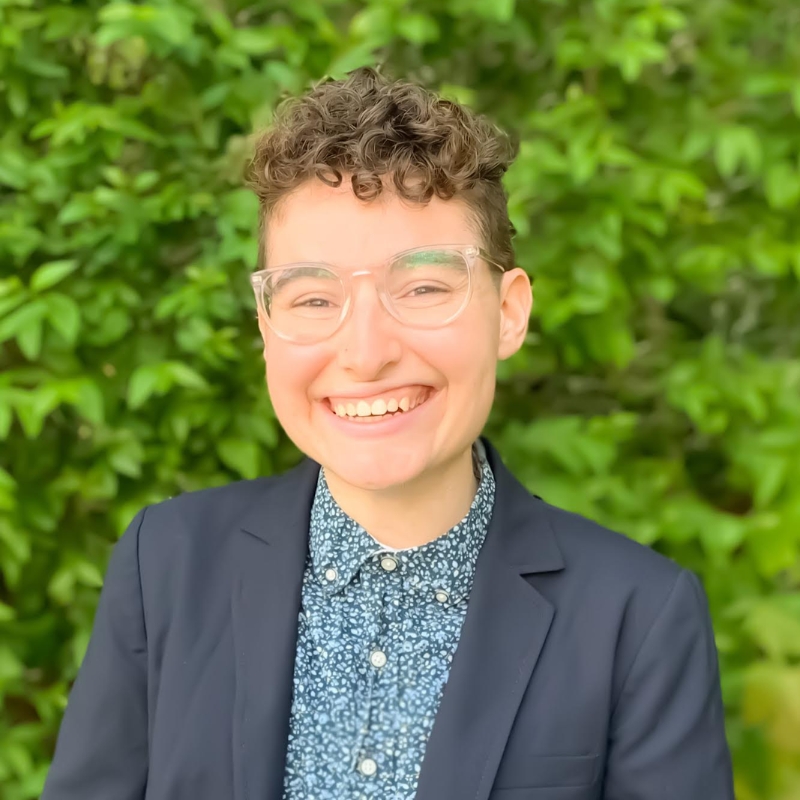This week, we read Parshat Chayei Sara (“The Life of Sarah”), and the title seems to suggest a focus on Sarah’s legacy, yet the text itself spends far more time on her end. Sarah’s death comes soon after the trauma of the Akedah, the near-sacrifice of her son Isaac, and her passing is described by Rashi as the direct result of hearing the devastating news that her son almost died at the hands of her husband, Abraham. Dr. Aviva Zornberg, in her book “The Beginning of Desire,” teaches that Sarah died of the shock and grief of this near-sacrifice, not just from physical trauma, but from the profound emotional and spiritual rupture that comes with the realization of how thin the line is between life and death.
This image of Sarah’s death — coming on the heels of harrowing trauma — brings us face-to-face with a difficult and uncomfortable truth about the Jewish people today: We are a people who, for generations, have been defined by trauma. We remember and feel deeply the Inquisition, the pogroms, the Holocaust, and the countless times that Jews have faced oppression and persecution. This trauma lives deep in our bones, so when we hear about a Jew suffering or a threat to Israel, our trauma response can go into full effect. This trauma plays a central role in defining how we understand ourselves and interact with the world.
Find more commentaries on Chayei Sara.
The tragic events of October 7, which shook Israel and world Jewry to its core, have been met with overwhelming grief and a deep sense of vulnerability, and rightly so. But in the aftermath of Hamas’ attack, Israel has responded with overwhelming force — brutal bombings on Gaza, forced expulsions, mass displacement, the destruction of entire communities, and now reports that Israeli officials have stated there are no plans to allow Palestinians in Northern Gaza to return to their homes. We cannot ignore that in the name of Jewish safety and security, entire communities are being made unsafe.
The atrocities taking place in Gaza are deeply disturbing. So, too, are the continued abuses of power in the West Bank, where settlement expansion and violence are increasing at an astronomical rate and where Palestinians live under constant threat of violence and displacement. The human rights violations, the collective punishment, the siege — it all brings us to the question: Now that Jews have power, are we inflicting a version of the violence and oppression that we ourselves have suffered and feared for centuries?
The danger we face today is that, in the name of Jewish safety, we risk perpetuating the very violence that we have suffered. We risk turning our trauma into the justification for inflicting more trauma — both for others and for ourselves. Just as Sarah’s death was a result of the trauma of the Akedah, we must ask ourselves: Will we, too, die spiritually and morally, if we allow our trauma to destroy us?
This focus on trauma isn’t new to this year. Josh Leifer, in his new book “Tablets Shattered,” articulates how the traumatic influences of the Holocaust live deep in our bones; they have become a core part of our identity. Leifer writes:
While we must remember our past, stories of the Holocaust — and Jewish trauma — have become the focal point of our religion. We have given these stories so much power and the idea that this trauma could have happened to American Jews has permeated our narratives. The remembrance of the Holocaust and its residual trauma has become the unifier of the Jewish people. If surveys are true, remembering the Holocaust is one of their only reasons for being Jewish. The centrality of the Holocaust has enabled the indefinite deferral of articulating positive reasons for continued Jewish identification. We are so focused on our victimhood that we cannot be fully present in our Jewish rituals and communities today.
Find more commentaries on the Israel-Hamas War.
In the aftermath of trauma, there is a natural desire to protect, to retaliate, and to secure our own safety at all costs. But, here is the danger we must confront: In seeking safety, in seeking justice for our own pain, we can risk perpetuating cycles of violence that dehumanize others — and ultimately ourselves. We cannot allow the trauma of the past to become a justification for the violation of others’ rights and dignity. When Jewish power is wielded in the name of vengeance or fear, as Jews we risk losing our soul — just as Sarah lost hers in the trauma of the Akedah.
We must not let the fear of another Holocaust bring us to a place where we condone horrors enacted upon other human beings. We are called to be a people of healing, of life, and of flourishing; let’s hold each other to that higher standard.
Rabbi Jenna Shaw (they/them) is the associate director of Israel campaigns and education at T’ruah. They were ordained in 2023 from the Rabbinical School of Hebrew College in Newton, MA.

